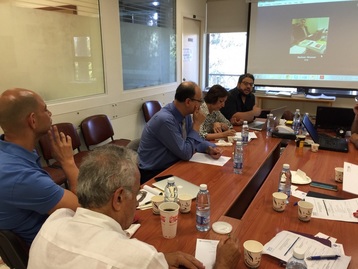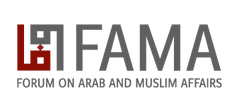- FAMA
- Researchers
-
Projects
- MESPI
- Knowledge Production Project >
-
Political Economy Project
>
- Development and the Uprisings
- Class Formations and Dynamics
- The Palestinian Economy: Fragmentation and Colonization
- Tunisia: A Political Economy in Transition
- Migrant States, Mobile Economies: Rethinking the Political in Contemporary Turkey
- Political Economy of the Middle East: Continuities & Discontinuities in Teaching & Research
- 2016 Political Economy Institute
- The Lebanon Project >
- The Palestine Project >
- The Civil Society Project >
- Middle East Media Project >
- The Egypt Project >
- Refugees and Migrants Project >
- Black-Palestinian Transnational Solidarities Project
- Initiatives
- Events
- Summer Institutes
- Internships
- Blog
 24 July 2015 @ 9:00am - 7:00pm American University Beirut, Lebanon Sponsored by the Arab Studies Institute & George Mason University's Middle East Studies Program Since 1992, the Arab Studies Institute has been engaged with producing, analyzing, and scrutinizing knowledge production on the region through its five subsidiary organizations. Most pertinent to this workshop is the Knowledge Production Project, which started briefly in the 1990s, but then resumed in 2007-2008. Its aim is to collect, organize, and analyze knowledge produced on the Middle East in the English language since 1979, in seven databases (see accompanying summary). This ambitious project is both unprecedented and potentially revolutionary, and is now in its advanced stages. At this point, we are turning our attention to knowledge produced in the region about the region, broadly conceived. Few challenges exist. Bibliometrics (statistical indicators of publications) is still considered the most reliable source on scientific production, mainly because it is independent of national authorities. Only two large multidisciplinary databases of citations exist, produced by two major publishing entities. Thomson produces the Web of Science (WoS), and Elsevier produces Scopus. Both databases are also commercial activities as much as they are sources of information. While they are not the only two sources available for bibliometric analysis, they share the aim of being multidisciplinary, independent, and of providing information on author affiliations and citations. Scopus covers more journals and other publications than Web of Science. While these databases don’t cover the Arabic references, recently, there are several newly established initiatives that address this: the databases E-Marefa and al-Manhal include academic material that cover full texts of academic and statistical journals as well as theses and dissertation. Based on that, we held a one-day meeting between different partners in order to accomplish the following: - Establish professional familiarity with existing projects, their directors, and their trajectories - Explore avenues for collaboration and partnership - Reduce overlapping agendas going forward and create synergy among projects The meeting was held on July 24 at the American University of Beirut, and accommodated up to 10 participants who brainstormed in Arabic and English.
0 Comments
Leave a Reply. |
Forum on Muslim and Arab AffairsFAMA is the research arm of the Arab Studies Institute. Archives
June 2017
Categories |
- FAMA
- Researchers
-
Projects
- MESPI
- Knowledge Production Project >
-
Political Economy Project
>
- Development and the Uprisings
- Class Formations and Dynamics
- The Palestinian Economy: Fragmentation and Colonization
- Tunisia: A Political Economy in Transition
- Migrant States, Mobile Economies: Rethinking the Political in Contemporary Turkey
- Political Economy of the Middle East: Continuities & Discontinuities in Teaching & Research
- 2016 Political Economy Institute
- The Lebanon Project >
- The Palestine Project >
- The Civil Society Project >
- Middle East Media Project >
- The Egypt Project >
- Refugees and Migrants Project >
- Black-Palestinian Transnational Solidarities Project
- Initiatives
- Events
- Summer Institutes
- Internships
- Blog

 RSS Feed
RSS Feed
